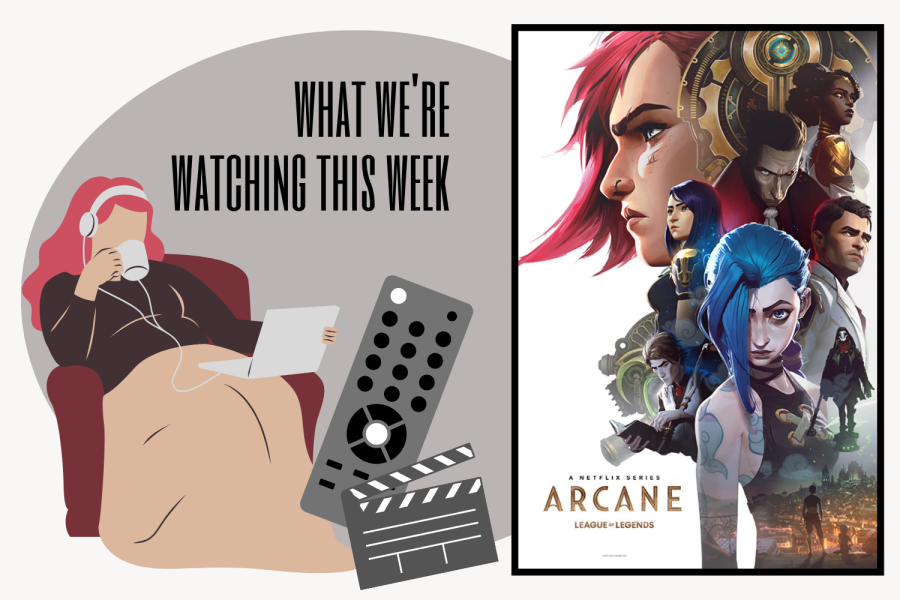Content warning: sexual assault
This is the time of year—after the Oscars and post-finals—that I rebrand my annual spout of early summer laziness as a “cultural experience” and sit down with my cats and some popcorn for a marathon of Oscar-winning movies and nominees. Just call me a film guru, a true connoisseur.
This year, I’ll take you to three waypoints along my marathon and let you know what I think is worth the watch. So, if you’re interested in the opinions of someone who admittedly bandwagons with whatever’s popular on Twitter and makes snap judgments based on the Tomatometer alone—then please, read on.
Promising Young Woman: Best Original Screenplay
A modern day “Thelma and Louise” of sorts, this feminist thriller confronts the normalization of rape culture in the 21st century. With intentionally ironic pastels and rom-com vibes, the film is centered around the experiences of Cassie Thomas (played by Carrie Mulligan), who drops out of medical school following her best friend’s rape and subsequent suicide.
Cassie lives with her parents and daylights as a barista; however, come nightfall, she pursues a twisted form of vigilante justice. She sits alone at bars with smeared makeup and a heavy head, pretending to be too drunk to stand, while waiting for a self-proclaimed “nice guy” to offer to take her home. When, inevitably, these guys try to take advantage of her, she drunkenly mutters protests, which they willingly ignore. That is, until, she sits up with chilling sobriety and in a clear and loud voice repeats what she had muttered.
These same words, now stated sober, stop the men dead in their tracks and force them to confront why her sobriety changes the implications of their actions. Their continued insistence that they are “nice guys” turns the focus from individual men to a society in which alcohol becomes an invitation for assault and the “nice guy” narrative.
Ripe with cliché one-liners we often hear as excuses and justifications for sexual assault, such as “I’m sorry; that’s just asking for it” and “It’s every man’s worst nightmare, getting accused of something like that,” the film continues to mount its attack on everyday sexism. By introducing these phrases in situations where men are clearly in the wrong, the film mocks their legitimacy, calling attention to how ridiculous it is that they often work. It likewise forces viewers to question why our society is so quick to defend accused men for fear of uprooting their entire lives when their actions have already done so to their supposed victims.
The film evokes very mixed feelings towards Cassie—I bounced back and forth between viewing her as a girlboss and a psycho, and other times I just plain pitied her. These shifting emotions are testament to the complexity of her character and Mulligan’s acting talent in period pieces, though the period in question just happens to be our own this time.
Should you watch it? Yes. Watch it. It’s worth your while. That being said, brace yourselves for some inner reflection and lingering thoughts in the days to follow.
Nomadland: Best Picture, Best Actress in a Leading Role, Best Director
This film exposes viewers to the largely untold stories of those who were left houseless during the Great Recession of the late 2000s. These people took to a nomadic lifestyle and created new homes in vans and RVs, finding community amongst themselves. As members of the audience, we are along for the ride, following the trail of a woman named Fern (played by Frances McDormand) as she sets off on her journey, working seasonal jobs and meeting new people.
While the film features recognizable actors like McDormand and David Strathairn, two characters, Swankie and Linda May, play themselves in the film, effectively giving viewers a genuine glimpse into their lives and making the film feel somewhat like a documentary. It’s hard not to feel for these “nomads” as they expose vulnerable parts of their own storied lives to the camera crew.
As Fern traverses the American West, stunning landscape shots help us understand the importance of the characters’ connection to the land. The cinematography also makes us feel like we’re traveling with the characters, privy to the special community they have built and their bonds of mutual tragedy. Despite the difficulty of their nomadic lifestyle and the hardships they have faced, the characters find joy in simply being alive and being connected to nature and to one another.
At times, the film did drag on, and I found myself staring into space or hurrying to the kitchen for more snacks without bothering to rifle through the couch cushions and find the remote to press pause. This is largely because the film lacked a real conflict and climax; instead, the entire film seemed to be a prolonged struggle. While this style might more efficiently mirror the experiences of these nomads, as a viewer I found it less engaging. Even though the film was seeped in tragedy and slow-paced, it still packs a quiet punch. I walked away feeling deep empathy for the characters and very touched by their experiences.
Should you watch it? It depends. If you’re looking for something fast-paced or want some light entertainment for a few hours, skip it. But if you want a completely new viewing experience that’ll teach you about a largely unknown subset of the population, go for it!
Soul: Best Animated Feature Film, Best Music
The soulful, playful vibes of this movie begin before the movie itself even does, as a jazz remix replaces the music in the quintessential Disney opener. Despite this fun energy and adorable animation, “Soul” tackles abstract and serious topics: the distinction between body and soul, how personalities come to be and—most importantly—how someone finds their “spark.”
Jamie Foxx voices the lovable Joe Gardner, a middle school music teacher and aspiring jazz musician. After a fatal fall into a drainage hole, Joe misses his one big shot—the chance to perform with jazz superstar Dorothea Williams—and he finds himself heading into the Great Beyond. Although he manages to escape, he instead winds up in the Great Before, where new souls develop their personalities and are mentored prior to starting their lives on Earth. A team of counselors, whose animation consists of neat minimalist, linear designs, operate the Great Before and Beyond.
During his stint in the Great Before, Joe meets 22 (voiced by Tina Fey), a soul intent on avoiding Earth and the life that comes with it. 22 initially comes across as difficult and stubborn, but that is ultimately revealed to be a front for the extreme anxiety she feels about life on Earth. Joe and 22 learn a lot from one another as they navigate different souls and bodies together.
By far, the coolest part of this movie is its visual representations of abstract concepts. For example, when someone on Earth is truly in their element—performing music, dunking a basketball or meditating—their souls awaken in an atmospheric, dreamy realm far beyond the boundaries of Earth to represent an “out of body experience.” Additionally, when 22 experiences Earth and human senses for the first time, Pixar gifts us many moments of engaging color and shape design on screen to accurately portray her unfamiliar emotions—think Remy teaching his brother how to properly savor food in “Ratatouille.”
Should you watch it? YES. YES. YES. Cute, fun and thought-provoking. Anytime, anywhere, this movie is sure to bring a smile to your face—and maybe a smidge of existential dread too. It is what it is.
Other winners:
Mank: Best Cinematography, Best Production Design
Minari: Best Supporting Actress
Ma Rainey’s Black Bottom: Best Costume Design, Best Makeup and Hairstyling
My Octopus Teacher: Best Documentary
The Father: Best Actor in a Leading Role, Best Adapted Screenplay




